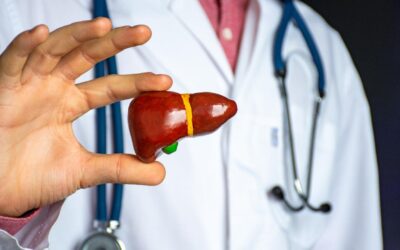Mumbai doctors highlight simple steps to prevent hepatitis

As per the World Health Organization data (2022), approximately 1.3 million people die each year from chronic viral hepatitis (B and C). The low diagnosis rate combined with limited treatment coverage poses a significant challenge.
Every year, World Hepatitis Day is observed on July 28, and is a crucial reminder to take proactive steps against hepatitis, a silent threat that can lead to severe health complications.
Dr Harish K C, consultant medical gastroenterology, Manipal Hospital Millers Road, Bengaluru, and Dr Alisha Chaubal, principal consultant, hepatology, Nanavati Max Super Speciality Hospital, Mumbai, delve into expert-backed strategies to prevent hepatitis.
From ensuring safe drinking water and practicing everyday hygiene to understanding crucial vaccines and the importance of early testing, these measures can significantly reduce your risk. Learn how one can safeguard your liver and contribute to a healthier future, starting today.
Safeguarding against Hepatitis A and E: Focus on food and water
Hepatitis A and E are frequently linked to contaminated food and water, posing a significant risk, especially during India`s monsoon season when water pollution is heightened.
Dr. Harish, emphasises, “To keep safe, people should only consume cooked water or use RO/UV-filtered water. Avoid drinking tap water and roadside beverages.” He further advises sticking to freshly cooked hot food and avoiding raw salads, street food, and cut fruits. “Wash all fruits and vegetables well in clean water or soak them in a moderate potassium permanganate solution,” he recommends.
He also suggests feeding fruits yourself rather than buying pre-cut ones and avoiding seafood during the monsoon season due to increased pollution risks. Proper water storage in fresh, sealed vessels that can be accessed without direct hand contact is another key precaution. “These minor but important precautions can significantly reduce the risk of hepatitis during this high-risk season,” Dr Harish notes.
Everyday hygiene: Beyond handwashing
While handwashing is fundamental, a broader approach to hygiene is vital in preventing all types of hepatitis.
According to Dr Harish, it is important to follow these critical everyday hygiene practices. He explains, “Maintaining proper food hygiene, drinking safe and filtered water, keeping fingernails clean and short, regularly cleaning kitchen and bathroom surfaces, and avoiding the sharing of personal items like razors, toothbrushes, and needles.” He highlights that Hepatitis A and E are primarily spread through contaminated food or water, making thorough washing of fruits and vegetables and practicing food safety essential. Hepatitis B and C, on the other hand, are transmitted through blood and bodily fluids, necessitating the use of sterile equipment for tattoos or piercings and ensuring proper sterilization in medical or dental settings. “It is also important to wash hands not just after using the toilet, but before preparing or serving food,” he adds.
Dr Harish also debunks common misconceptions. He explains, “A common misconception is that hand sanitisers are enough for hygiene, but while useful, they do not remove dirt or faecal matter effectively.” Another widespread myth he addresses is that hepatitis is solely caused by poor sanitation or is only a risk for drug users, when in fact, even clean-looking environments can harbour contaminated food or water, and visits to salons or clinics with inadequate sterilization can pose risks. He concludes, “Preventing hepatitis requires consistent and thorough hygiene practices, not just occasional caution.”
The power of vaccination: Hepatitis B
Vaccination plays a pivotal role in preventing hepatitis, particularly Hepatitis B.
“To prevent mother-to-child transmission, the Hepatitis B immunization schedule in India begins with a birth dose, which is ideally administered within 24 hours of delivery,” explains Dr Harish. This is followed by three additional doses at 6, 10, and 14 weeks of age, with a potential booster later in life depending on individual health status. Beyond newborns, Dr Harish emphasises, “High-risk populations should be vaccinated include healthcare professionals, laboratory personnel, persons with chronic liver disease, dialysis users, and those who live with someone who has hepatitis B.” He assures, “Adults who missed childhood vaccination can still follow the three-dose schedule, stressing that the vaccine is safe and effective, and reduces the risk of long-term liver issues.”
Recognising early symptoms and the importance of testing
Early detection of hepatitis is crucial for effective management and preventing progression.
He further highlights, “Early symptoms of hepatitis are often mild and can be mistaken for those of other infections. These subtle signs include dark urine, a low-grade fever, nausea, fatigue, and appetite loss. Jaundice, or yellowing of the eyes or skin, can occur gradually or quickly in certain people, and that clay-coloured stools and abdominal pain could also be warning signs.”
The health expert urges immediate medical attention if any of these symptoms appear, especially after recent travel, consumption of potentially contaminated food or water, or contact with an infected person. He strongly advises against waiting for jaundice, “By then, liver damage may have progressed. With early diagnostics, issues can be avoided and future spread can be limited,” he adds.
Protecting against Hepatitis D (HDV) for HBV carriers
Individuals living with chronic Hepatitis B (HBV) face increased health risks if exposed to Hepatitis D (HDV), a virus dependent on HBV for its replication. As there is no vaccine for HDV, preventing exposure remains the sole protective strategy for those already infected with HBV.
On the other hand, Dr Chaubal, highlights key preventive measures for HBV carriers:
1. Consistent antiviral therapy: Maintaining HBV viral suppression through regular antiviral treatment significantly reduces vulnerability to HDV infection and limits the severity of potential complications.
2. Avoiding shared items: She advises against sharing personal items like razors, toothbrushes, and needles, which can transmit viruses through blood contamination.
3. Practicing safe sex: Consistent use of condoms reduces the risk of HDV transmission through sexual activity.
4. Blood screening: Ensuring thorough screening of blood products before transfusion protects against inadvertent HDV exposure.
5. Regular monitoring: Frequent monitoring of HBV viral load helps in early detection of superinfection, allowing timely interventions.
The benefits of early hepatitis testing
Early detection of hepatitis profoundly impacts prognosis and disease progression. Since Hepatitis B or C often remain asymptomatic in early stages, proactive testing is critical.
Dr Chaubal outlines the benefits of early testing:
1. Prompt treatment initiation: Early antiviral therapy can halt or slow down the progression of liver damage, preventing fibrosis, cirrhosis, and hepatocellular carcinoma (HCC).
2. Identification of silent carriers: Early screening identifies individuals who unknowingly carry the virus, enabling interventions to prevent further spread.
3. Ongoing liver monitoring: Regular liver function tests (LFTs), elastography, and alpha-fetoprotein (AFP) tests facilitate ongoing assessment of liver health.
In India, several tests are readily accessible:
1. HBsAg test: Detects Hepatitis B surface antigen, serving as a primary screening tool.
2. Anti-HCV antibody and HCV RNA testing: Initial antibody tests followed by RNA testing confirm Hepatitis C virus presence.
3. HDV antibody testing: Specifically recommended for individuals already infected with HBV, though availability may be limited to select specialised centres.
4. Rapid diagnostic kits: Provided through programs like the National Health Mission (NHM) and the National Viral Hepatitis Control Program (NVHCP), as well as private laboratories.
Lifestyle choices for liver health
Beyond direct infection prevention, lifestyle choices significantly influence liver health and resilience. Adopting specific modifications can substantially benefit individuals at risk or already diagnosed with hepatitis.
Dr Chaubal recommends:
1. Alcohol avoidance: Abstaining from alcohol is crucial, as alcohol significantly accelerates liver damage in hepatitis cases.
2. Healthy weight management: Maintaining a healthy weight prevents the onset of non-alcoholic fatty liver disease, which complicates hepatitis management.
3. Balanced, nutritious diet: Consuming a diet rich in antioxidants (found in leafy greens, berries), lean proteins, and omega-3 fatty acids supports liver function and overall health.
4. Regular physical activity: Routine exercise enhances insulin sensitivity and assists in reducing liver fat, improving metabolic function.
5. Medication Vigilance: Avoiding unnecessary medications, particularly hepatotoxic drugs and supplements, minimises liver strain.
6. Routine Health Check-ups: Regular assessments of liver health can detect and manage hepatitis progression early.
Immediate action after potential exposure
Immediate action following potential hepatitis exposure can effectively prevent infection or reduce severity. Promptness is key.
Dr Chaubal provides guidance:
1. For HBV exposure: Administer Hepatitis B Immunoglobulin (HBIG) within 24 to 72 hours, followed immediately by the HBV vaccination series. If previously vaccinated, checking anti-HBs antibody levels is crucial, and revaccination may be needed based on results.
2. For HCV exposure: While no immediate prophylaxis exists for Hepatitis C, baseline testing followed by regular follow-up assessments is essential. Early initiation of direct-acting antiviral (DAA) therapy upon acute infection detection can reduce chronicity risk
3. For HDV exposure: Since HDV depends on HBV infection, timely HBV vaccination provides effective protection against HDV in uninfected individuals.
For all potential hepatitis exposures, including needlestick injuries, unprotected sexual contact, or mucosal contact with blood, Dr Chaubal stresses these essential steps, “Immediate thorough washing of the exposed site, immediate reporting and documentation of the incident, and comprehensive serological testing with routine follow-up.”
Prompt and informed action can drastically reduce hepatitis infection risks and its long-term health consequences. By taking these simple steps, you can actively protect your liver and contribute to a healthier future.
Search
Recent
- What’s a Potato? A Nine-Million-Year-Old Tomato
- Candidate Trump Promised Oil Executives a Windfall. Now, They’re Getting It.
- Trump Taps Climate Skeptics to Attack Science on Global Warming
- A New Border Wall in Arizona Would Block a Key Wildlife Corridor
- Congress dalit figures in Karnataka close ranksahead of internal quota report





